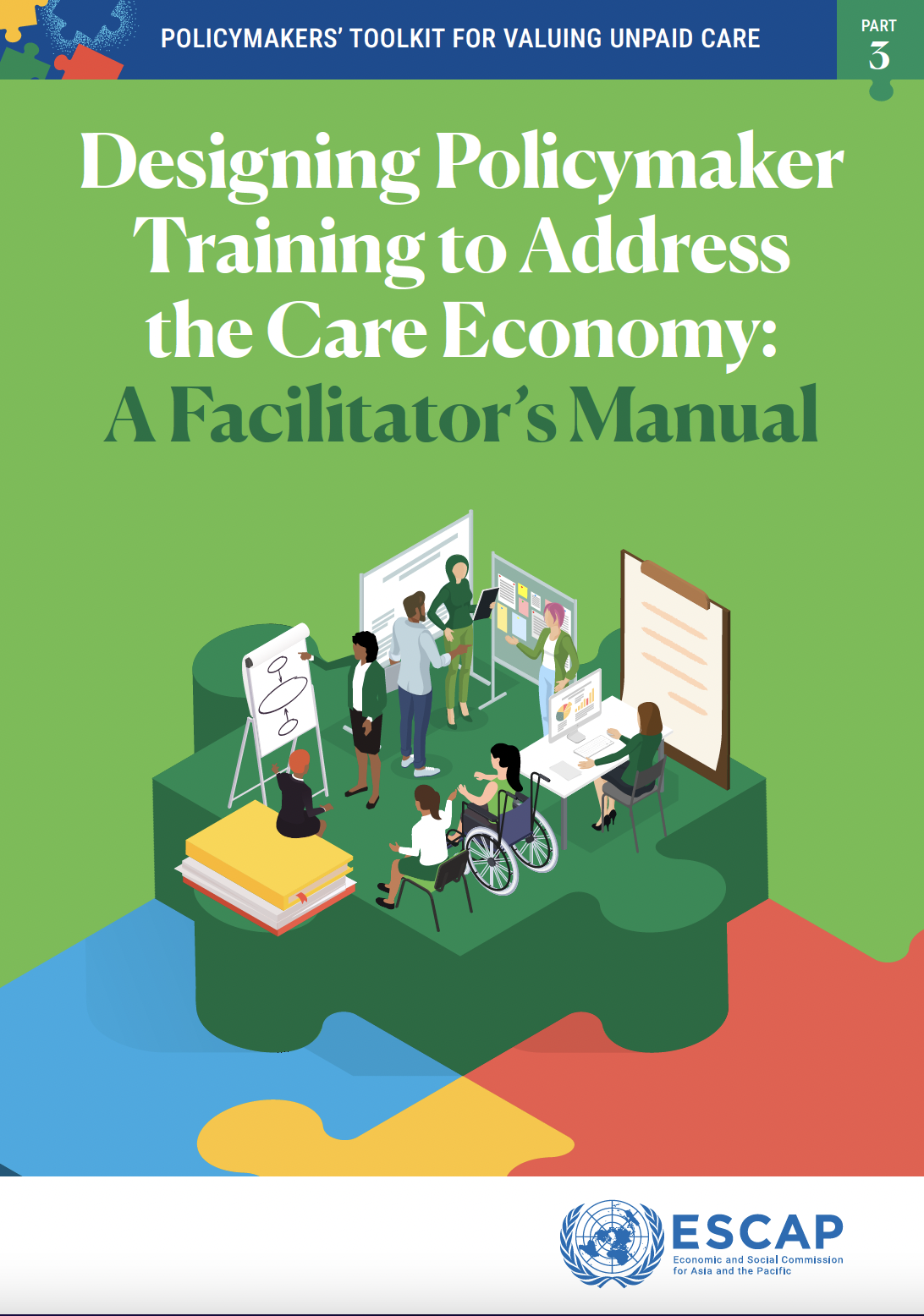
This manual is designed to serve as a comprehensive guide for facilitators to design a training programme for policymakers and government officials in understanding and integrating the care economy into national policy frameworks. Developed through a collaboration between the Ministry of Women’s Affairs of Cambodia (MOWA), the United Nations Economic and Social Commission for Asia and the Pacific (ESCAP) and the Institute of Development Studies (IDS), this manual aims to equip facilitators with knowledge and tools to conduct effective trainings, thereby enabling policymakers and development practitioners to develop and implement informed, impactful care-sensitive policies. Building on existing conceptual and theoretical frameworks on care that are explained in the first publication in this Toolkit, ‘How to invest in the care economy: a primer’, this manual addresses the importance of the care economy in policymaking, programme design and implementation. It utilizes the Model Framework for Policy Action on Care Economy (henceforth referred to as MFA), explored in publication two of the Toolkit, to acknowledge unpaid care work as a critical element that sustains the market economy and forms the bedrock of all development. It prompts critical questions and seeks out relevant data that can translate into evidence-led care-sensitive and gender transformative policies. This manual is not merely an instructional guide; it is a comprehensive toolkit to systematically interrogate and incorporate assessment of each element of the care economy, which is key to ensuring the care agenda is set and implemented in a manner that serves the needs of all members of society.

